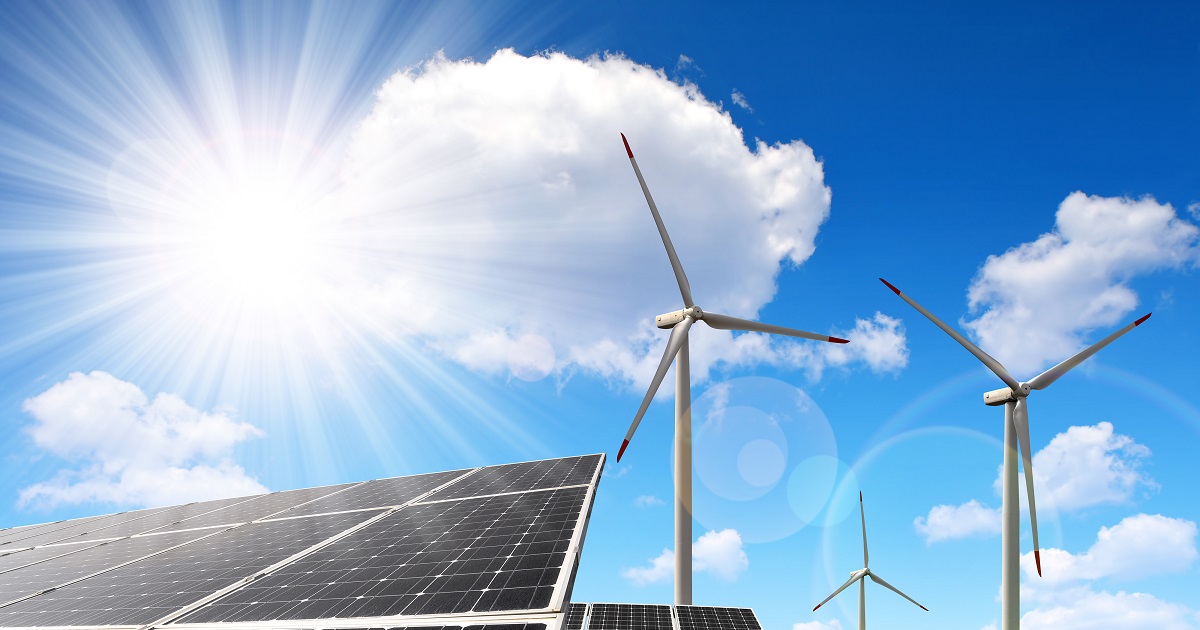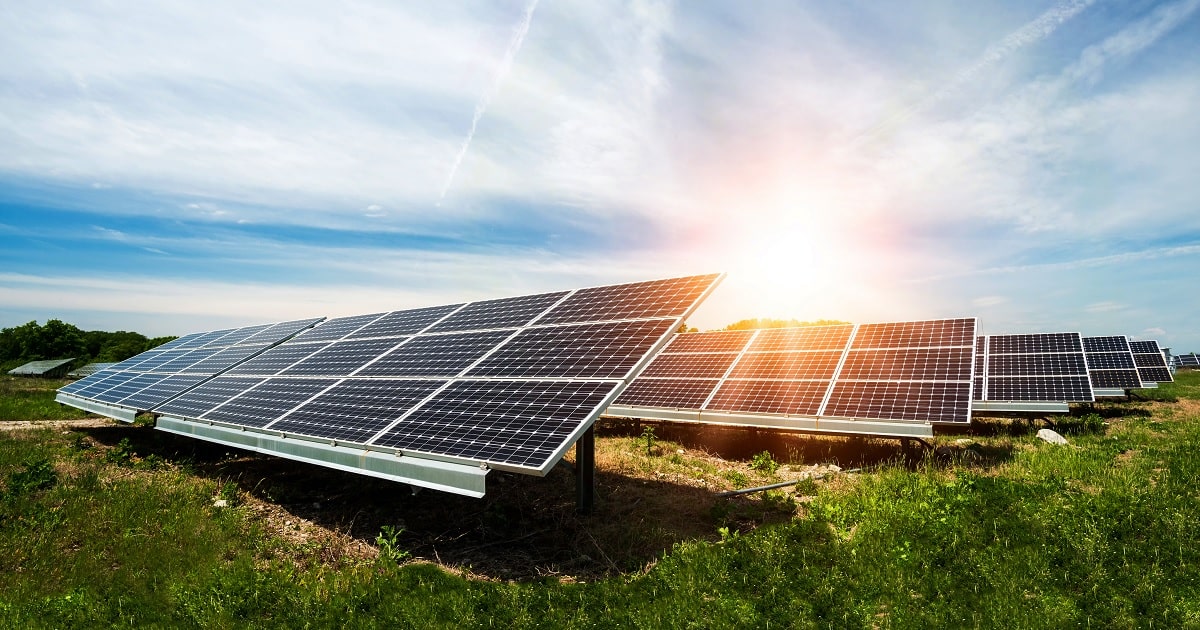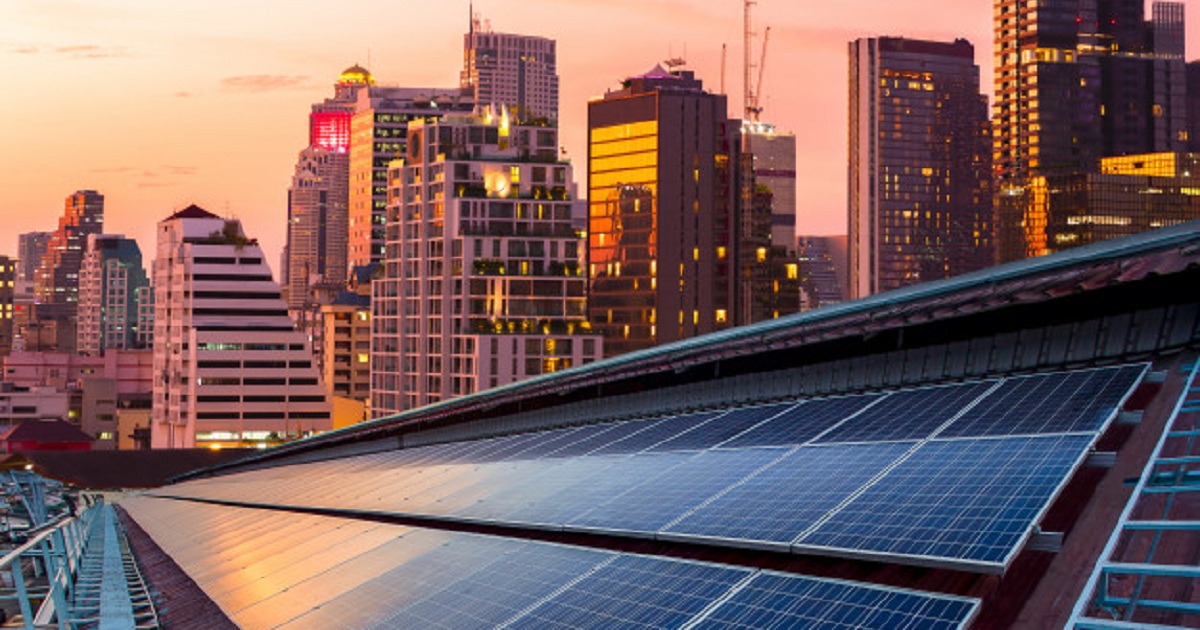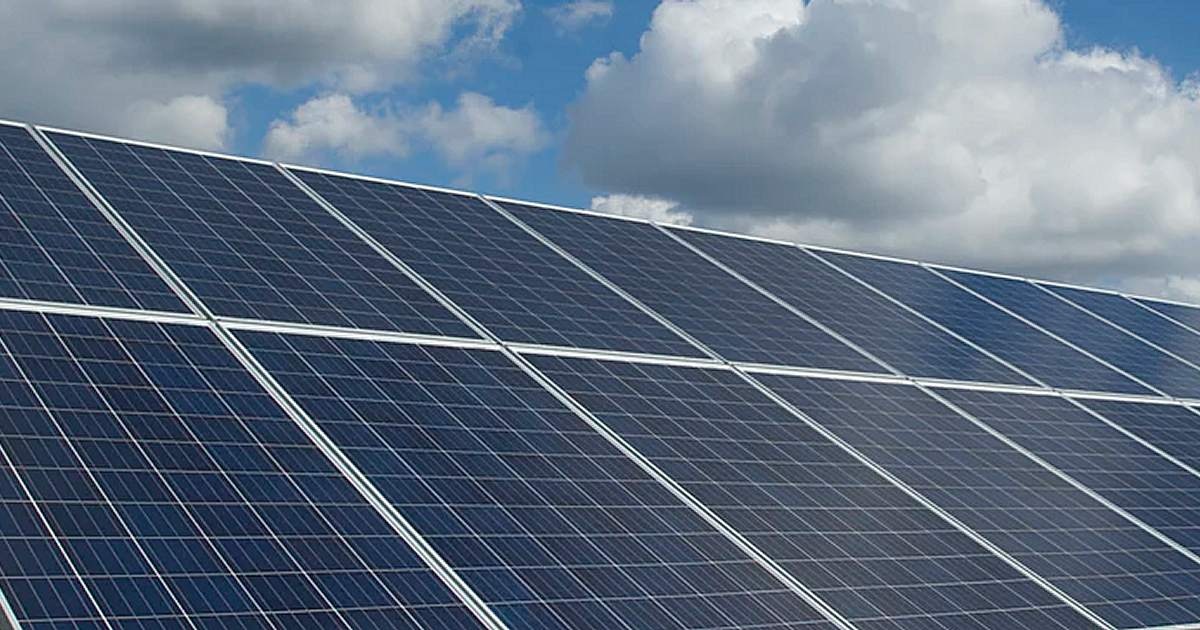
Energy
Article | July 16, 2022
As the worldwide use of artificial intelligence (AI) in the energy market is expected to reach $7.78 billion by 2024, with a CAGR of 22.49% from 2019 to 2024, it is easy to see why it's a popular topic on the minds of many leading brands in the energy sector, as well as investors looking to reap the future perks that AI could bring to the energy industry.
According to BIS Research, North America is expected to be the largest market for AI in energy through 2024. However, Asia-Pacific is expected to rise rapidly over the same time due to the rising need for more decentralized power production.
Investment Opportunities in AI-based Energy Industry: Economic Visibility
AI's economic viability and progress in the energy business can be attributed to numerous factors, including:
The desire to increase operational efficiency.
Increased interest in energy efficiency.
Decentralized electricity generation is being expanded.
Battery storage solutions are gaining popularity.
Since artificial intelligence has a wide range of applications, there are several investment opportunities in the energy industry.
Upstream Oil and Gas
Enhance efficiency and decrease downtime, which is critical for hydrocarbon companies owing to volatile oil prices and demand, to lessen the environmental implications of energy generation and consumption.
AI Chatbots
AI has the potential to enhance interactions between contact centers and consumers. Utilities that outsource to contact center providers can suffer significant fees. This is where AI, particularly when combined with natural language processing (NLP), can assist contact center operators by listening to conversations and automatically noting information in the appropriate apps, helping operators to make calls more reliable, effective, and satisfying to customers.
Smart Homes and Cities
AI integration benefits smart meters and smart energy management systems as well. Many residences and towns can utilize AI to collect real-time data and apply it in a number of ways to function more effectively and efficiently, enhancing sustainability while also making a living more comfortable and cities more accessible.
Monitoring Trends in Energy Generation and Consumption
Artificial intelligence is being utilized to assist energy companies and customers in recognizing and tracking patterns in energy generation and consumption. AI, for example, can predict the potential output of a certain wind or solar plant.
Closing Lines
Banking, finance, and trade are some of the suitable businesses that can profit. For example, AI and machine learning can be used in algorithmic trading, which involves utilizing computer programs to make trades in the energy business at speeds and frequencies that any human trader would consider inconceivable.
Read More

Solar+Storage, Strategy and Best Practices
Article | September 17, 2022
Introduction
Renewable energy has transformed our planet. It's raised awareness of global warming and climate change. Both governments and ordinary people are seeking to move from fossil fuels to renewable energy because of this awareness. Technology's involvement in this revolution cannot be understated. Thought a few years ago that solar energy would power average houses in small communities. Thanks to the widespread manufacture of lithium-ion batteries, EVs will be the next big thing.
Major Renewable Energy Technologies Transforming the Future
Power-to-X
Despite the name, this is not a conspiracy theory about global dominance. Modern technology converts electricity into synthetic fuels, thermal energy, and hydrogen. This breakthrough technology can minimize fossil fuel dependence by focusing on synthetic ones. It can also help with efficient storage solutions.
Green Appliances and Machines
Leading household appliance makers are launching solar-powered appliances. This is a wonderful start toward minimizing family power expenses. Many households have begun to invest in gadgets such as solar air conditioners.
Distributed Generation Systems
Several locations are experimenting with distributed generation. This reduces dependence on a centralized grid and simplifies transmission and distribution. It also reduces grid dependability and failures.
Electrification
Most European nations are actively electrifying to cut carbon emissions. This is not the same as a power supply. Rather, it implies developing assets and infrastructure that can shift and aid in the adoption of electricity. Providing public EV charging stations is a step towards electrification.
Closing Lines
Prominent private companies such as Google, Apple, and Microsoft have made significant commitments to renewable energy in recent years. While some governments are actively attempting to make the shift, others have yet to take environmental challenges such as global warming and climate change seriously. Technological breakthroughs are helping to make the transition to renewable energy greener, quicker, and more economical.
Read More

Strategy and Best Practices, Energy
Article | July 27, 2022
The evolution of smart grid and the transformation in the power sector?
The concept of a Smart Grid has taken centre stage with an evolution of Solar, Wind energy sources, advanced technologies such as AI/ML , Energy storage , introduction of Electric vehicles, sensors that transmit real time data all of which make a smarter, more efficient electrical power grid possible.
In contrast the Existing grid is facing some complex challenges that include integrating renewable energy, Cyber security, high losses, unable to support large Electric vehicle penetration and empowering consumers to become power producers.
It is time for India to make this paradigm shift that touches right from Generation, Transmission, Distribution and consumption. So, the first step would be the installation of smart meters and Advanced Metering infrastructure which is a key component of the smart grid. The roll out of smart meters has already started and integrating other pieces into this smart meter value chain and other building blocks. This new metering system enables two-way flow of information between consumers and utilities and improve the overall grid operations, cost efficient and support large scale penetration of Electric vehicles. A major transformation is underway and utilities need to develop their roadmap for creating a modern Smart Grid.
Solar is seeing low tariffs and what one can interpret from these solar tariff trends?
In the last one year, more than 10GW worth of solar projects are auctioned and tariffs discovered are between Rs2 to Rs 2.5. These low tariffs are result of many factors that include aggressive bidding, entry of foreign players, and expectation that module prices will further fall. Also this Covid pandemic has shrink the economy, thus there are fewer tenders from the govt. with more developers chasing fewer tenders to stay in the race.
These low prices put enormous pressure on EPC companies and Module suppliers to deliver at these rock bottom prices. These bids take into account the low prices of Chinese imports, now with BCD (Basic custom duty) in force from April 2022 it will be challenging for power producers to continue executing projects at such low prices.
Another concern is the delay in signing PPA’s (Power purchase agreements) by Discoms. PPA’s once signed are valid for the entire term of PPA which is usually 25 years. But given the tender tariffs falling every few months, Discoms prefer to wait and delay the signing or renegotiate the existing PPA, dampening the investor confidence and threatening the viability of the Projects. In these circumstances the role of regulatory oversight increases to protect the interests of all the stakeholders. However, in the coming years technology improvements with addition of energy storage and better forecasting techniques, Solar would become the major source and also the cheapest source. So sunny days ahead of solar.
The decentralized solar and innovative business models and financing?
In the current system of centralized power system, a large power plant produces power, transmits, and distributes it among industries and homes. This process is inefficient as some of the electricity is lost in transmission and distribution.
A De-centralized solar is more efficient to generate and consume power locally. It also helps create small businesses and technicians to build and maintain these solar plants. Also as Solar and battery systems increase and become more economical Peer to Peer energy trading is possible where consumers become prosumers (both producers and consumers) and sell their excess power to their peers.
This next generation Energy Management and Peer-to-Peer Energy trading facilitates buy and sell orders just like share trading stock exchange. The Energy trading platform maps the buyers and sellers as per their bids and settles the trades. By introducing Block chain technology for energy trading further reduces the transaction costs. The possible business models would be Community based Solar plants where rooftops and open spaces could be used to generate power and trade. All of this result in less losses and brings the much needed dynamism in the distribution of energy.
Role of AI and data analytics in the energy sector?
The Power sector generates large amounts of data from various nodes on the grid and unfortunately most of this data go unanalysed due to lack of infrastructure and domain expertise. But now with the maturity in data management systems and two-way communication enabling real time data from various components of the grid giving latest and integrated snapshot of the entire power system, it is possible through the application of AI to provide services such as Fault detection, Predictive maintenance, Power quality Monitoring, and Renewable energy forecasting.
Many discoms are plagued by theft of power and Cyberattacks. The recent Cyber attack on Maharashtra power grid is an example that caused massive power outage in Mumbai last October plunging the city into darkness. By using the power of AI/ML, algorithms can be trained to detect any attack based on certain attributes. As soon as the attack is detected an alert is sent to the security engineers to bring the system to safety mode. In addition, Smart meters with pre-paid mechanism are expected to be deployed for remote meter reading and accurate billing thus preventing revenue loss.
AI/ML has the potential to cut energy waste, lower energy costs, and bring more operation efficiencies for the utilities.
Strategies in EV charging and integration with smart grid?
EV’s are promising solution to cut greenhouse gas emissions, reduce the cost of transportation and improving the health of citizens. The emerging business models are Public charging stations, third party owned operated charging station, and owner operated charging station.
However, the ground reality is far fewer EV’s are running on road due to higher cost, Range anxiety, and long charging times. So, there is need to work closely with all the stakeholders right from utilities, Regulatory bodies, Car manufacturers, charging station operators to expedite the process of EV related infrastructure and incentivize customers to adapt to EV’s rather than convention vehicles.
In your question you asked about integration with smart grid and this is a term that captures the shift from basic to smart charging. A smart grid is key to smart EV charging as large number of EV charging at same time can degrade grid performance causing voltage and frequency fluctuations and cause peak power demand or sudden drop in demand. With smart grid in place it is possible to do load balancing, adjust charging patterns and avoid peaking of power.
Also one more challenge is there are 3 competing standards and India should define its own standards and enable charging of any vehicle at any charging station. This interoperability is possible by developing standards for front–end and back-end communication and signalling process between Electric vehicles and charging stations and the grid that supplies the power. Smart grid is essential for large deployments of EV’s.
Investment opportunities and job creation in this transformation to clean power?
Covid has changed the entire investment paradigm and made all of us Environmentally conscious. This is wake up call to prioritize a more sustainable approach to investment in companies that are high on Environmental, Social and Governance score.
The recent momentum in ESG investment with more than 3,300 ESG funds is an indication that businesses that demonstrate business ethics, transparency, Sustainability benefit companies and investors and attract best talent too. The spectacular rise of share price of Tesla is a clear message from investors on clean energy and EV transportation. As the world is getting serious India has a catching up to do from the findings of Refinitiv on ESG.
As Asset managers, Pension funds, Oil and Gas companies evaluate their exposure to fossil based energy sources and switch towards clean energy this is going to create new Green jobs. These new Green jobs range from retrofitting homes with solar panels, providing home based charging stations, energy efficient appliances, Solid waste mgmt, e-waste mgmt. Similarly, Smart cities, Green buildings, greening of enterprises can be achieved by training the work force on these new concepts and driving investments towards job creation and sustainability.
In summary, power sector is in for a major transformation and utilities, industries need to tap the right talent to deal with this disruption and reap immense benefits.
Read More

Solar+Storage
Article | April 29, 2021
SA Water’s electricity supply is about to become greener and cheaper again with the addition of another major solar power system, and an even bigger installation to soon follow.
The utility says more 7,300 solar panels installed at the second pump station on its pipeline between Swan Reach and Stockwell are now connected and ready to go.
“The Swan Reach to Stockwell Pipeline spans across more than 50 kilometres inland from the mighty Murray across to the northern Barossa area, and therefore requires significant energy to pump clean, safe drinking water across such large distances,” said SA Water’s Nicola Murphy
While the total capacity of this new solar farm wasn’t provided, Ms. Murphy said it will generate approximately 5,224 megawatt hours of clean, green energy annually. There’s more solar energy to come for this section of pipeline, with a further 16,000 panels currently being connected at the first pump station.
Read More